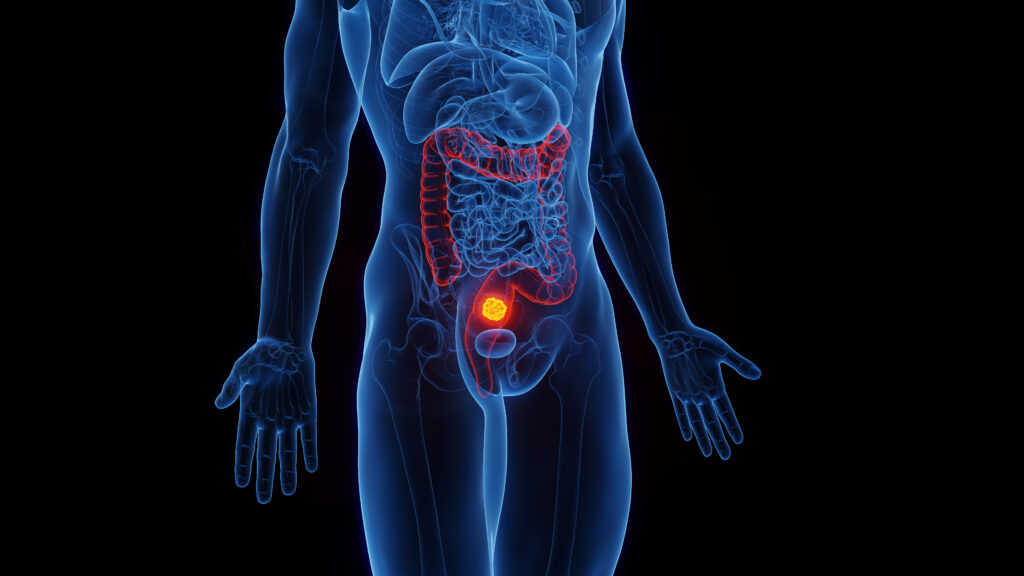Introduction
Hepatocellular carcinoma (HCC) is the fifth most common cancer, and its incidence is increasing worldwide due to the dissemination of hepatitis B and C virus infection. Patients with cirrhosis are at the highest risk of developing HCC and should undergo surveillance programmes to detect the tumour at an early, asymptomatic stage.1
Introduction
Hepatocellular carcinoma (HCC) is the fifth most common cancer, and its incidence is increasing worldwide due to the dissemination of hepatitis B and C virus infection. Patients with cirrhosis are at the highest risk of developing HCC and should undergo surveillance programmes to detect the tumour at an early, asymptomatic stage.1
Patients with early-stage HCC – as defined by the Barcelona Clinic Liver Cancer staging classification2 – should be first considered for surgical treatment options, including hepatic resection and liver transplantation. Hepatic resection is best indicated for patients with single tumour and well-preserved liver function who have neither abnormal bilirubin nor clinically relevant portal hypertension.2 However, less than 5% of cirrhotic patients with HCC fit these criteria.3
Liver transplantation benefits patients who have decompensated cirrhosis and one tumour smaller than 5cm or up to three nodules smaller than 3cm each, but donor shortage greatly limits its applicability.2 This difficulty may be in part overcome by living donation, but this cannot be applied on a large scale.
Surgery is also established as the standard of care for hepatic colorectal metastases. Overall survival rate after hepatic resection may exceed 40% at five years.4 However, only 10% to 25% of patients with colorectal metastases isolated to the liver are eligible for surgical resection, because of extent and location of the disease in the liver or concurrent medical conditions.5 Unfortunately, conventional treatment of non-operable or non-resectable patients with systemic or intra-arterial chemotherapy protocols is not entirely satisfactory in terms of survival outcomes.6
Image-guided techniques for local tumour treatment have emerged as a viable therapeutic option for patients with limited hepatic malignant disease who are not surgical candidates. Over the past decade, several methods for chemical ablation or thermal tumour destruction through localised heating or freezing have been developed and clinically tested. Radiofrequency (RF) ablation has emerged as the most powerful technique for tumour destruction and is nowadays established as the primary ablative modality at most institutions. In fact, recent improvements in RF technology have substantially increased the potential of the technique in clinical application.7
Although many papers have suggested that RF ablation could represent a viable treatment option for non-surgical patients with HCC or colorectal hepatic metastases, the technique did not achieve – until recently – general consensus, given the paucity of studies reporting long-term outcomes of treated patients. Recently, several institutions worldwide have reported five-year survival data of patients with liver malignancies who underwent RF ablation. This article reviews the long-term results of RF ablation in the treatment of HCC and colorectal hepatic metastases.
Treatment of Hepatocellular Carcinoma
RF ablation is very effective in local ablation of HCC. Histologic data from explanted liver specimens of HCC patients who underwent RF ablation showed complete tumour necrosis in 83% of tumours less than 3cm.8 In comparative studies, the rates of complete tumour ablation achieved with RF ablation were higher with respect to those obtained with the use of other ablative methods, such as percutaneous ethanol injection (PEI).9,10
The survival impact of RF treatment has been evaluated in three randomised trials, in which RF ablation was compared with PEI for the treatment of early-stage HCC (see Table 1).11–13 In the first trial, performed in European centres, patients with Child A or B cirrhosis and either uninodular tumour less than 5cm or as many as three tumours less than 3cm each were randomly assigned to receive RF ablation or PEI.11 The overall survival rates at one and two years were 100% and 98%, respectively, in the RF group; and 96% and 88%, respectively, in the PEI group. Despite the tendency favouring RF ablation, the observed difference did not reach statistical significance, probably because of the short follow-up period. However, one- and two-year recurrence-free survival rates were significantly higher in RF-treated patients than in PEI-treated patients, and RF treatment was confirmed as an independent prognostic factor for local recurrence-free survival by a multivariate analysis.11
In the second study, coming from Taiwan, patients with HCCs 4cm or less were randomly assigned to three groups (conventional PEI group, higher-dose PEI group and RF group).12 The overall and cancer-free survival rates were highest in the RF group, and multivariate analysis determined that tumour size, tumour differentiation and the method of treatment (RF versus both methods of PEI) were significant factors in relation to local tumour progression, overall survival and cancer-free survival.12 Survival advantages – as well as a higher local anticancer effect – have also been identified in a recent Japanese study, although they were not confirmed in the sub-group analysis of patients with solitary tumours.13
Two studies recently reported the long-term survival outcomes of RF ablation-treated patients (see Table 2). In the first paper, 206 patients with early-stage HCC who were not candidates for resection or transplantation were enrolled in a prospective, intention-to-treat clinical trial.14 RF ablation was considered as the first-line non-surgical treatment and was actually performed in 187 (91%) of 206 patients. Nineteen (9%) of 206 patients had to be excluded from RF treatment because of the unfavourable location of the tumour. In patients who underwent RF ablation, survival depended on the severity of the underlying cirrhosis and the tumour multiplicity. Patients in Child class A had three- and five-year survival rates of 76% and 51%, respectively, while those in Child class B had three- and five-year survival rates of 46% and 31%, respectively. A sub-group of patients with Child class A cirrhosis and uninodular tumour showed a five-year survival of 61%.14
In the second study, 319 patients received RF ablation as primary treatment (naïve patients) and 345 patients received RF ablation for recurrent tumour after previous treatment including resection, PEI, microwave ablation and transarterial embolisation.15 The cumulative survival rates at three and five years were 78% and 54%, respectively, for naïve patients; and 62% and 38%, respectively, for non-naïve patients.15
Long-term survival data support the use of RF ablation as the interventional treatment of choice for HCC patients with early-stage tumours. Further studies are warranted to define the potential role of RF ablation techniques – possibly in combination with intra-arterial therapies in the treatment of patients with more advanced tumours.16
Treatment of Colorectal Hepatic Metastases
Many studies have investigated the use of RF ablation in the treatment of limited hepatic metastatic disease in patients who were excluded from surgery. Two early studies reported rates of complete response that did not exceed 60% to 70%.17,18 Subsequently, owing to the advances in RF technique, reported rates of successful local tumour control following RF treatment substantially increased. In two series, RF ablation allowed eradication of 91% of 100 metastases and 97% of 74 metastases, respectively.19,20
Recently, data on long-term survival of non-surgical patients with hepatic colorectal metastases who underwent RF ablation have been reported (see Table 3).21–26 In particular, in three series including patients with five or fewer lesions, each 5cm or less in diameter, the five-year survival rate ranged from 22% to 30% at five years.23,25,26 These figures are substantially higher than those obtained with any chemotherapy regimens and provide indirect evidence that RF ablation therapy improves survival in patients with limited hepatic metastatic disease.
Recent studies analysed the role of RF ablation with respect to surgical resection. In one study, 418 patients with colorectal metastases isolated to the liver were treated with hepatic resection, RF ablation plus resection, RF ablation only or chemotherapy only. Overall survival for patients treated with RF ablation plus resection or RF ablation only was greater than for those who received chemotherapy only. However, overall survival was highest after resection – four-year survival rates after resection, RF ablation plus resection and RF ablation only were 65%, 36% and 22%, respectively.24 In another paper, the outcome of patients with solitary colorectal liver metastasis treated by surgery or by RF ablation did not differ – the survival rate at three years was 55% for patients treated with surgery and 52% for those who underwent RF ablation.22 Other authors used RF ablation instead of repeated resection for the treatment of liver tumour recurrence after partial hepatectomy.27
The potential role of performing RF ablation during the interval between diagnosis and resection as part of a ‘test-of-time’ management approach was investigated.28 Eighty-eight consecutive patients with colorectal liver metastases who were potential candidates for surgery were treated with RF ablation. Among the 53 patients in whom complete tumour ablation was achieved after RF treatment, 98% were spared surgical resection because they remained free of disease or because they developed additional metastases leading to unresectability. No patient in whom RF treatment failed to achieve complete tumour ablation became unresectable due to the growth of the treated metastases.
Recently, the predictors of survival in RF ablation for patients with colorectal liver metastasis were determined.29 One hundred and thirty-five patients with colorectal liver metastases who were not candidates for resection were assessed. The median Kaplan-Meier survival for all patients was 28.9 months after RF ablation treatment. Patients with a carcinoembryonic antigen (CEA) less than 200ng/mL had improved survival compared with those with a CEA more than 200 (34 versus 16 months; p=0.01). Patients with the dominant lesion less than 3cm in diameter had a median survival of 38 versus 34 months for lesions 3cm to 5cm, and 21 months for lesions greater than 5cm (p=0.03). Survival approached significance for patients with one to three tumours versus more than three tumours (29 versus 22 months; p=0.09). The presence of extrahepatic disease did not affect survival. Only the largest liver tumour size more than 5cm was found to be a significant predictor of mortality by Cox proportional hazards model, with a 2.5-fold increased risk of death versus the largest liver tumour size less than 3cm (p=0.05). As historical survival with chemotherapy alone was 11 to 14 months, the study suggested that RF ablation had a significant positive impact on overall survival.
Conclusions
Several series have shown that RF ablation can result in complete tumour eradication in properly selected candidates, and have provided indirect evidence that the treatment improves survival of patients with early-stage HCC or limited hepatic metastatic disease from colorectal cancer.30 RF ablation technology is undergoing continuous improvement, and its clinical application is continuously expanding. Appropriate use of RF ablation techniques can only be ensured when the therapeutic strategy is decided by a multi-disciplinary team and tailored to the individual patient and the features of the disease. ■












